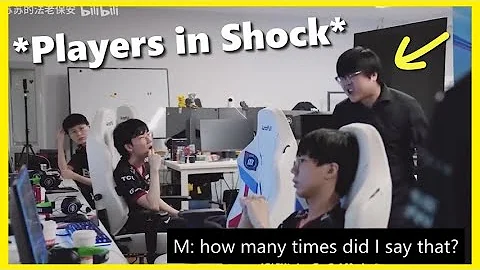
The gaming industry’s tumultuous relationship with cryptocurrency concepts like blockchain and NFTs began to sour in dramatic fashion yesterday when Sony launched a new “digital collectibles” feature for the revamped PlayStation loyalty program.
What was supposed to be a golden opportunity for Sony to proudly enter Web3 turned into a telling moment for the sluggish NFT market, as Sony emphasized that it is not actually selling NFTs and has no plans to do so . For gaming companies, NFTs have become damaged goods.
Sony is not alone. Companies across the gaming industry and other industries are distancing themselves from NFTs—sometimes only in name only—in a way that heralds a reputational crisis for Web3 enthusiasts who claim the technology will be revolutionary.
Sony’s words come from Grace Chen, the company’s vice president of online advertising, loyalty and authorized merchandise. This sentence is incredible.
Chen told the Washington Post : "This is definitely not an NFT. Absolutely not. You can't trade them or sell them. It doesn't utilize any blockchain technology and it's definitely not an NFT." He left no trace of doubt that Sony believed that attaching the cryptocurrency market to its valuable brand name would be extremely disruptive.
Reddit did something similar recently when it announced "collectible avatars" last month, choosing not to use the term NFT. But Reddit does sell the avatars, using blockchain technology to signify their uniqueness and facilitate aftermarket transactions.
Some of the biggest names in the gaming industry stopped singing the praises of NFTs and blockchain gaming after just a few months. Electronic Arts CEO Andrew Wilson late last year called NFT and blockchain games "the future of our industry." By February, he had withdrawn.
Microsoft Gaming CEO Phil Spencer said last year that he believed NFTs could be "exploitative" and that the market was rife with scams and speculation.
Take-Two Interactive CEO Strauss Zelnick is a rare believer in NFT among the top executives in the gaming industry. Earlier this year, he still predicted that NFT will be "reset", that is, "as a part of the entertainment economy taking its rightful place”.
There are two reasons for the gaming industry’s attitude towards NFTs. The first one is obvious: some players hate them with a passion, and many are at least completely ambivalent about them. The second reason is the collapse of the cryptocurrency market, with cryptocurrency prices plummeting and NFT trading volume plummeting.
A new survey of U.S. gamers over the age of 18 found that 81% have not purchased an NFT. Among the players surveyed, only 40% are interested in making money while playing games.
Axie Infinity, once a promising forerunner in the blockchain gaming space, has experienced an alarmingly rapid fall after the catastrophic events of more than $600 million in crypto tokens being hacked and the in-game economy collapsing.
Axie Infinity parent company Sky Mavis has promised to compensate players, but not all, as the price of Ethereum, which the game is based on, has collapsed over the past few months.
Any company that might be interested in jumping into the NFT market, gaming or otherwise, may now be having second thoughts. Sales at leading NFT marketplace OpenSea have collapsed, falling 75% since May and 90% over the past six months. The company said Thursday it was cutting about 20% of its workforce. The basic concepts of
NFT make sense for gaming. What takes effort is implementation. Ubisoft's Digits is one of the most high-profile examples, and a telling test case for other industries, that it failed quite publicly and quickly.
The French publisher introduced collectible power-ups late last year in Ghost Recon Breakpoint, a two-year-old shooter with a shrinking player base. The backlash was violent, the value of the NFT never rose, and Ubisoft shut down the entire project four months later.
Since then, no other major game publisher or developer has attempted to launch an NFT, and we're probably unlikely to see another attempt in this regard from Ubisoft for quite some time.When it happens, it might not even be called an NFT but a digital collectible.
One company that won’t give up on its dream is GameStop, the troubled retail merchant that launched a beta version of its NFT marketplace this week. Rather than focusing on gaming NFTs (which it plans to eventually highlight), GameStop primarily sells so-called "profile picture" NFTs.
The company achieved modest trading volumes of $3.5 million after three days. But at a 2.25% cut rate, that equates to a paltry $78,750 in revenue for the company.
When a company best known for its meme stocks and selling Blu-ray discs at local malls becomes one of the last to fly the flag for this particular brand of NFT, it might be time to move on.
NFT will not completely disappear. But as Take-Two’s Zelnick predicts, we may see a real-time market reset as companies distance themselves from NFTs, which from a marketing perspective is a poisonous well that the market should be looking towards. More useful digital ownership. This could be the involvement of blockchain technology. Or, as Sony has discovered, it might not need blockchain at all. Mihai Vicol, head of metaverse at
market research firm Newzoo, recently told me: “I think we’ve only seen the tip of the iceberg. Most of the headlines are dominated by profile picture NFTs, but I think there are many more use cases for them. I think if you break down the concept of NFT, it's a very powerful concept. The idea of having a digital item that is verifiably scarce, verifiable as yours, that it can't be counterfeited, that it exists as an original."
However, Vicol added, "I think game companies need to do more work to figure out how to best implement these NFTs in games."





















